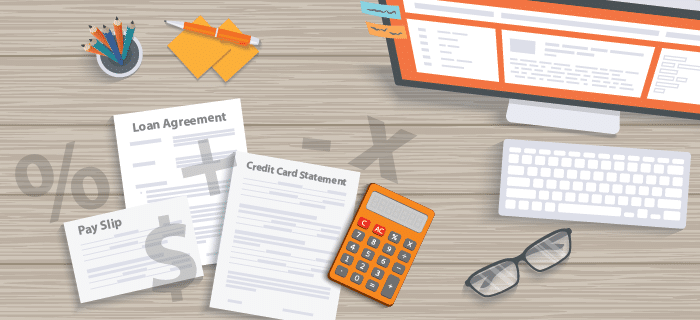A mortgage makes it possible for prospective homeowners to cover the full cost of buying or building a home. At TTMF, you can borrow up to 100% of the purchase price or the value of the property (whichever one is lower) and agree to repay the amount borrowed (i.e. the principal sum) plus interest over a specified time (i.e. mortgage term) in the future.
Like many prospective homeowners, you are probably asking yourself these questions when considering taking out a mortgage:
- How much can I borrow? (i.e. principal sum)
- How much would my monthly payments be? (i.e. mortgage instalments)
- How long can I take to repay? (i.e. mortgage term)
These are the three main factors that you must take into consideration:
- Your Income
- Your Age
- Your Level of Debt
Income
Generally, your monthly mortgage instalment must not exceed one third (1/3) of your gross monthly income. Divide your total gross monthly income by three (3) to get an idea of the maximum mortgage instalment that you would be able to pay.
Age
Generally, your mortgage term cannot extend beyond your 60th birthday (or the age at which you retire) or be more than 30 years. Therefore, you must subtract your current age from your retirement age to calculate the maximum term of your mortgage. Even if the result is more than 30 years, the maximum term will be capped at 30 years.
Level of Debt
When applying for a mortgage, your total debt inclusive of your proposed monthly mortgage instalment, must not exceed forty percent (40%) of your gross monthly income i.e. your Total Debt Service Ratio (TDSR) must be less than or equal to 40%. Your TDSR provides an indication of the percentage of your monthly income that is committed to repaying debts in the form of loans, credit cards, hire purchase agreements etc. It is calculated by adding up all your monthly debt obligations and dividing it by your monthly income.
Putting it All Together
A higher gross monthly income increases the amount of money you could potentially set aside for paying your mortgage instalment e.g. A person with a gross monthly income of $12,000 would be able to pay a mortgage instalment of up to $4,000 while someone who earns $9,000 monthly can pay up to $3,000.
Also, applying for a mortgage when you are younger gives you a longer time to repay. A 28-year-old mortgage applicant could potentially be approved for a mortgage term up to 30 years so they would fully repay by 58 years old. However, another mortgage applicant who is 43 years old would have a only have 17 years to repay if, retiring at 60 years old.
Lastly, it goes without saying that the higher your existing debts, the less you may be able to borrow to buy or build your new home. As a prospective homeowner, it is advisable that you keep your debt to a minimum or try to eliminate it altogether. This will help you afford a higher monthly mortgage instalment and increase the principal sum that you qualify for.
Other Considerations
Apart from your income, age and level of debt, there are a few other factors that you may want to consider, such as the mortgage interest rate, closing costs and the ability to make additional payments. Check out our blog post What to Ask Before Taking a Mortgage to see which questions you should ask before signing on the dotted line.
Get an Estimate
We have an online mortgage calculator that you can use to get an estimate of how much your monthly mortgage payment could be, as well as, to give an idea of how much you could qualify for given your income, age and debt. Try our Mortgage Calculator now







